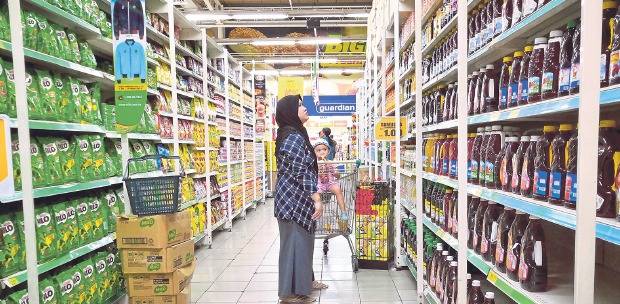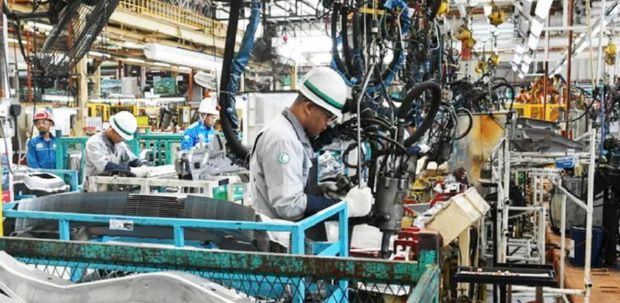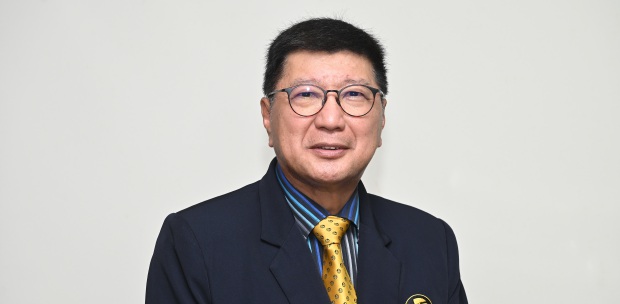SUBANG JAYA: Tun Dr Mahathir Mohamad says Malaysian manufacturers must diversify their products in order to lessen dependence on imported products.
The prime minister said while Malaysia currently produces goods for consumption, other countries not only do the same but also manufacture the machines used to make the products.
These countries, he said, innovate in order to make their products more marketable to other countries.
“Malaysian manufacturers should diversify and venture into making other products. Manufacturers, in the process, will acquire knowledge (and expertise) to manufacture things on our own.
“In order to make the economy grow, we must be able to manufacture for ourselves.
“Otherwise, we would only be a country of consumers and (Malaysia’s) GDP (Gross Domestic Product) will not grow as the money flows out (of Malaysia),” he said during the 50th Federation of Malaysian Manufacturers (FMM) annual dinner here on Tuesday.
Also present were Economic Affairs Minister Datuk Seri Azmin Ali; Federal Territories Minister Khalid Samad, Domestic Trade, Consumer Affairs and Consumerism Deputy Minister Chong Chien Jen; Minister in the Prime Minister’s Department Mohamed Hanipa Maidin; and FMM president Datuk Soh Thian Lai.
Also present was Dr Mahathir's wife Tun Dr Siti Hasmah Mohamad Ali.
Dr Mahathir said Malaysian manufacturers are capable of becoming as diversified and advanced as their European, Japanese and South Korean counterparts. He noted that countries such as China and South Korea were not previously known for their manufacturing prowess.
He said he was surprised that since the days of Malaysia’s Look East policy in the 1980s, China has since acquired manufacturing skills and capabilities to the extent that other countries now send blueprints to China to manufacture products at a lower cost.
This capability, he said, is seen in China’s drone sector, where one drone can drop fertilisers on fields in a single day, doing the same work as 100 people who would need a month to accomplish the same task.
He noted that South Korea’s smartphone manufacturer Samsung has even come to the point of beating United States-based rival Apple at manufacturing high-tech smartphones that dominate the world market.
“We did not expect Apple to be beaten by Samsung. South Korea was not previously known for manufacturing this (smartphone). If South Korea can do it, Malaysia can too,” he said.
He said it is imperative that Malaysian manufacturers diversify by using the same amount of land used in agriculture, which used to be the country’s primary economic driver.
“We used to depend on mining and export of tin, as well as rubber and palm oil. But there is a limit to this as tin deposits have already been exhausted.
“We cannot depend on tin as it is limited while for rubber and palm oil, we need to clear forests.
“In manufacturing, you have space where one acre can support 500 people in manufacturing and factories. It can accommodate more workers compared to agriculture.
“The future of the country depends on manufacturing. I call on FMM to delve into making other products in Malaysia,” he said.





